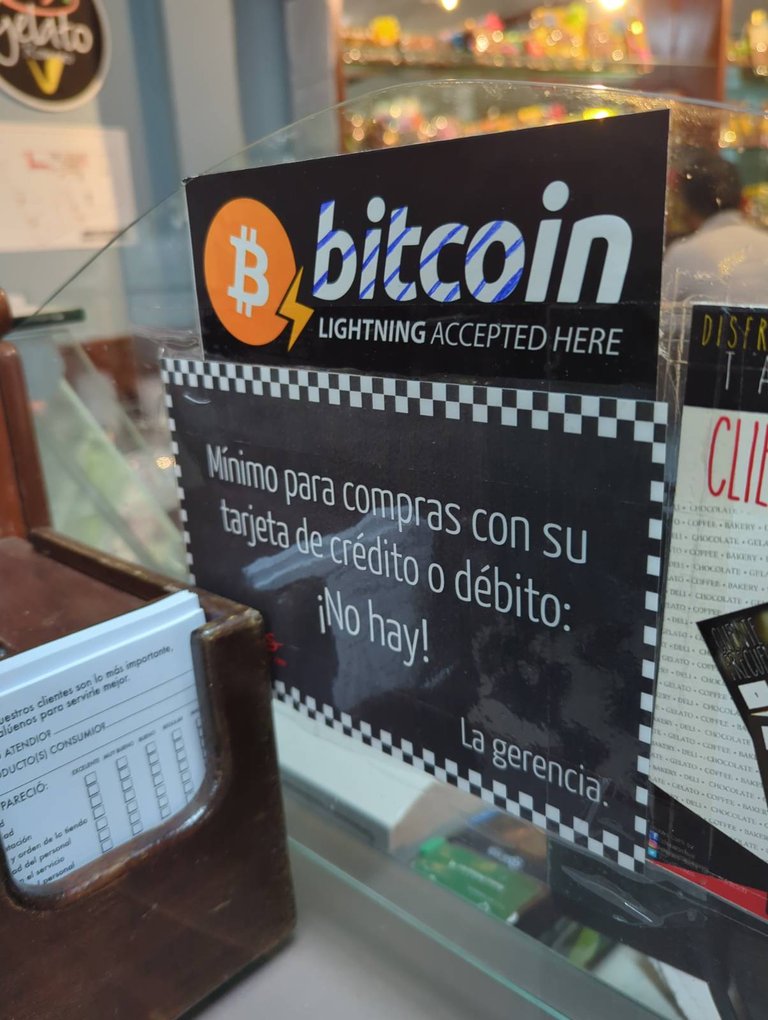Back in September of 2021, El Salvador was the first nation to make Bitcoin legal tender and purchase it as a strategic reserve asset. Since then, businesses inside the country have been trying to integrate Bitcoin, and slowly getting accustomed to the new payment system.
Throughout the last few years there has been a lot of controversy surrounding the law, and problems with its implementation. Although the adoption of Bitcoin as a payment method has been relatively slow, the nation is still better prepared than most for the future of finance.

Controversy
Shortly after the Bitcoin law passed, I heard some locals complaining that the population didn't have the proper education to be using it, and felt as though they had been thrown into the deep end without a life jacket. There were also plenty of technical problems immediately after the roll-out, which caused frustration on both the side of the merchant and the customer.
In addition to these issues, there were many in the crypto space who thought that passing the Bitcoin law was an unethical move, because crypto had always been considered a voluntary payment method, and not something to be enforced.
That said, a lot of Salvadorans wouldn't have got involved with Bitcoin had it not been sanctioned by the government. Not everyone is willing to venture out on their own, so sometimes the leaders need to be responsible for getting their fellow community members involved with new technology, and nudging them in the right direction.
Adoption
Even though Bitcoin is technically legal tender in El Salvador, there is very little enforcement of the law. In other words, businesses will not be punished for refusing to accept it. There is no "Bitcoin police" patrolling the country checking that all businesses are accepting it - and that's a good thing.

Aside from touristy areas like El Zonte ("Bitcoin beach") and El Tunco, the rate of Bitcoin adoption has been relatively slow. I think this can be attributed to the fact that most people still view Bitcoin as something that can be traded for more fiat, and not as a currency to buy food, gas, or accommodation with.
That said, most Starbucks locations are still accepting Bitcoin. Unfortunately, the option to pay with it at McDonald's self-service machines stopped working months ago. Siman, the nation's largest department store, is also still accepting Bitcoin at a single register.
Super Selectos, a grocery chain, will usually take Bitcoin at one or two different check-outs. Their computer system is wicked slow though, so you may inconvenience the other customers behind you. Other cafes and restaurants will be hit and miss, depending on who's working and if they can locate the correct smartphone.
Chivo
Most businesses are using the Chivo app to receive Bitcoin payments because it's the official government wallet, and relatively easy to connect to a domestic bank account. Strike, IBEX PAY and Athena Pay are other common options, but a merchant is free to choose whatever Bitcoin wallet suits their purpose.
Chivo is capable of receiving on-chain Bitcoin, lightning Bitcoin, and a digital form of the US dollar (not to be confused with decentralized stablecoins). It's important to realize that with Chivo, the government holds your private keys. However, you can transfer your Bitcoin to a self-custody wallet if you're feeling rebellious 😉
The Future
Although there have been some setbacks with the adoption of Bitcoin in El Salvador, overall there has been progress. Lightning payments are definitely more reliable now than when the law passed in 2021. Also, Chivo and Athena Pay have been upgraded to improve compatibility with non-Chivo wallets, making for a smoother payment experience.
Only time will tell if the Salvadoran government eventually enforces Bitcoin payments (perhaps when the dollar starts hyperinflating), or if they will allow merchants to accept other cryptocurrencies. They have already written digital asset regulations, which will likely evolve over time.

Until next time...
As large countries attempt to roll-out their CBCDs and implement other draconian laws, I suspect we will see further fracturing of the traditional nation state, causing smaller towns and cities to adopt various cryptocurrencies, which may be enforced at a local level.
El Salvador's Bitcoin experiment has been very interesting to watch, and we shall see how it continues to unfold.
If you learned something new from this article, be sure to check out my other posts on crypto and finance here on the HIVE blockchain. You can also follow me on InLeo for more frequent updates.
Further Reading
How Safe Are The Streets Of San Salvador
Is El Salvador Dumping Violent Criminals In America?
Posted Using InLeo Alpha